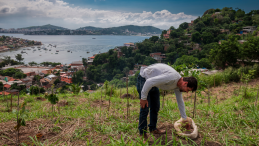Cale Salih co-authored a piece on the politics of the Kurdish independence referendum in Foreign Affairs. The following is an excerpt.
On September 25, Iraqi Kurdish leader Massoud Barzani plans to hold a referendum on Kurdish independence. The results will not be legally binding, but in calling for a vote, the Kurdish leadership has put its own society and its foreign partners into a bind. Although the vote may extend the lifespan of a Kurdish leadership otherwise in decline, it calls for unity that mutes domestic dissent and risks provoking crises that will leave Kurdistan externally exposed.
Parties Over Institutions
The participation of Iraqi Kurdish forces in the campaign against the Islamic State (ISIS) over the last few years won the region’s leaders unprecedented foreign military assistance and expanded control over ethnically mixed disputed territories along its internal boundary with the rest of Iraq. With the campaign’s culmination in the capture of Mosul this summer, however, external military support and international attention may taper off. For instance, the Pentagon recently acknowledged that although coalition troops could be expected to stay in Iraq after the defeat of ISIS, the U.S. footprint would be smaller and would involve fewer bases. Some Kurdish leaders thus believe they have a limited window of opportunity to organize a referendum, the second such attempt since 2005.
The proposed referendum has provoked deeply mixed reactions among Iraqi Kurds. Although some, especially among the older generation, genuinely believe that the vote will reward the Kurds for their decades-long struggle for autonomy, others, mainly among the younger generation, see it as a cynical ploy by Kurdish leaders to remain in power. Many—perhaps the majority—feel uneasy, torn between a desire to seize the chance the referendum claims to offer and mistrust of the leadership that put it forward. Prominent civil society leaders, including some journalists and activists, have publicly opposed the vote, and some political forces have stayed silent or offered only conditional support.
It does seem apparent that the old guard—the generation of leaders that spearheaded the armed struggle for Kurdish autonomy many decades ago—has clung to power too long and is now the main obstacle to the emergence of a strong and independent Kurdistan.


